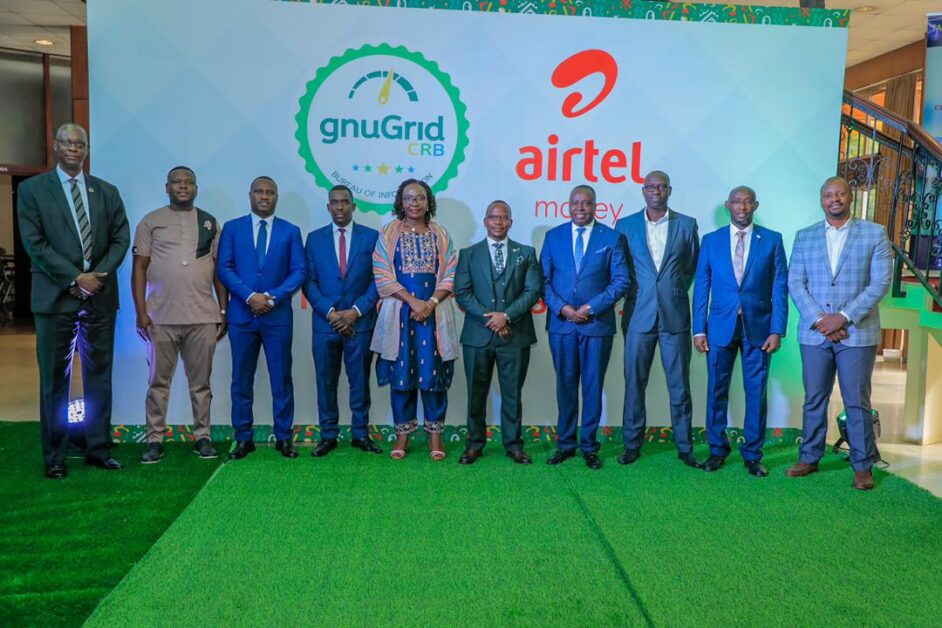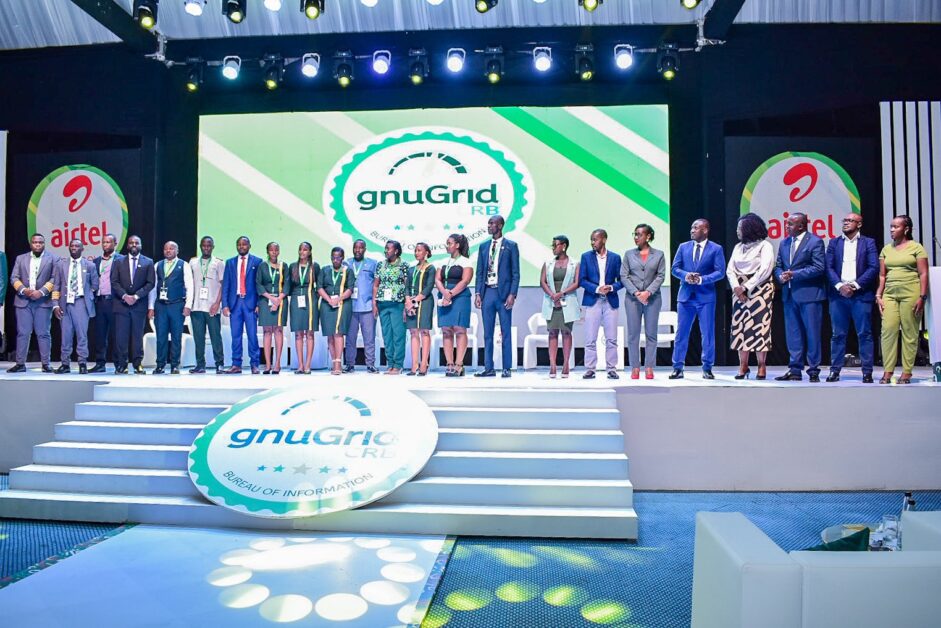To reduce poverty and promote economic growth through affordable and quality financial services, the government of Uganda through the Uganda National Financial Inclusion Strategy (NFIS) II (2023 – 2028), seeks to increase access to formal financial institutions (banks, non-banks, including mobile money) from 66% in 2021 to 75% by 2028 as well as increase private credit bureau coverage from 6.9% of adults in 2019 to 15% by 2028.
The strategy was developed by the Bank of Uganda and the Ministry of Finance, Planning and Economic Development, with funding from the Bill & Melinda Gates Foundation, through the Financial Sector Deepening (FSD) Uganda.
According to the World Bank’s Global Findex Database 2021 (Findex 2021), 66% of Ugandan adults are estimated to have access to a regulated financial account, a rise that has been driven largely by the penetration of mobile money. The report also notes that while close to 77% of Ugandans borrow money in one way or another, only 31% borrow from a formal financial institution.
Findex 2021 also notes that while digital financial services (DFS) have enabled more Ugandans to access formal financial services – payments are the most prominent formal financial transactions at 64%. Formal saving and borrowing remains critically low, at 32% and 29% respectively.
One of the stumbling blocks to catalysing the immense potential of digital lending has been how to innovatively work around the classic way of assessing creditworthiness and other challenges such as lack of access to collateral, especially for women and the youth.
That is why one of the core objectives of the Uganda National Financial Inclusion Strategy (NFIS) II (2023 – 2028), is deepening and broadening the usage of quality and affordable formal financial products especially for the many undeserved and underserved low-income Ugandans unable to use them for various reasons that include high costs of financial services, mistrust of formal financial systems and insufficient collateral to access credit. Priority has been put on establishing proactive measures to drive electronic and digital payment adoption, removing barriers that limit the usage of financial products and services, availing more affordable financing to MSMEs and underserved groups, strengthening digital and information security, deepening, and enhancing interoperability among financial services providers and creating an enabling environment that supports innovation.

But even long before this strategy came into place, David Opio Obwangamoi, an economist, self-taught software engineer and techpreneur had been working to solve this challenge.
Back in 2013/14, a young David Opio Obwangamoi, fresh from Makerere University, where his Economics Bachelor’s Degree majored in Quantitative Economics and Economic Policy Modelling co-founded Ensibuuko- a fintech that helps community-based savings and loans organisations so they can efficiently reach and serve unbanked and most underserved communities in Africa with affordable and relevant financial services. Using technology, Ensibuuko helps these organisations to automate their data, processes and payments and to become efficient and bankable by large financial institutions.
Opio, cofounded Ensibuuko with Gerald Otim, a friend and former economics classmate at Makerere University.
Fast-forward, having worked to scale Ensibuuko, Opio’s passion to further extend formal financial services saw him take up yet another ambitious venture, but this time into credit information services, with the founding of gnuGrid CRB.
Yes, Uganda already had two existing Credit Reference Bureaus⏤ Experian (formerly Compuscan and now Credit Info Uganda) and Metropol Uganda and both companies had been operating in Uganda for quite some time and are part of larger groups operating outside Uganda as well, but Opio felt there was space to play especially for the unserved and underserved. He believed he could use his experience and knowledge from Ensibuuko as well as his passion for financial inclusion to make a mark in the fintech-driven financial inclusion space.
Founded in 2019, and licensed as a CRB in 2021, gnuGrid became Uganda’s first and only indigenous credit reference bureau to be licensed by the Bank of Uganda.
A fourth reference bureau, Armada CRB has since been licensed, but gnuGrid CRB remains the only indigenous CRB.
gnuGrid’s purpose, according to David Opio Obwangamoi, the Executive Director, is “to enable financial inclusion through credit information sharing up to the last mile person”.
gnuGrid’s trailblazing Mobile Credit Score
While like all CRBs gnuGrid targets a broad range of financial institutions⏤ Tier I (commercial banks), Tier II (credit institutions and finance companies), Tier III (microfinance deposit-taking institutions), gnuGrid’s passion point is Tier IV, the Savings and Credit Cooperative Organisations (SACCOs), financial Non-Government Organisations (NGOs) and all other non-deposit taking financial institutions.
Armed with this passion, David Opio Obwangamoi’s gnuGrid CRB on January 24th, 2024, in partnership with Airtel Money Commerce Uganda Limited (AMCUL), launched Uganda’s first-ever Mobile Credit Score.

Unlike the traditional and more conservative credit services available on the market today, which rely only on data supplied by financial institutions to assess character and the capacity to pay back, which must then be backed by collateral, the more innovative gnuGrid CRB instead uses over 400 alternative data points supplied my mobile phone companies such as client mobile financial behaviour as well as transaction volumes and frequency to create a more comprehensive and inclusive credit score. This generates equally reliable credit information that can be relied on for efficient loan origination, risk assessment, disbursements, repayments as well as performance tracking.
Unlocking more unfinanced dreams
The Mobile Credit Score by gnuGrid is anticipated to have a favourable effect on borrower ratings and assist lenders in identifying and excluding customers who have been blacklisted due to poor credit ratings, thereby, encouraging responsible borrowing and financial inclusion up to the last mile customers in Uganda.
For lenders, the solution has immense business sustainability benefits such as enabling lenders to filter out high-risk borrowers, tailor and create new products, reduce the loan assessment/operational costs well and lower the cost of lending amongst many other benefits. These cost-savings and reduced risk are expected to subsequently be passed onto borrowers in the form of reduced cost of money.
For borrowers, it enables them to know their creditworthiness/financial health and therefore be able to improve where the are identified gaps. This in turn helps them access credit faster, improve their loan limits and subsequently be able to finance more of their dreams. Those with excellent credit scores should eventually be able to benefit immensely in the form of cheaper loans as well.
Since its launch, the Mobile Credit Score has now reached an average of 9,730 credit inquiries daily. Cumulatively, there have been 548,200 customer sessions and 213,000 credit score requests.
Empowering Ugandan women and youth
Speaking at the launch, held at Kampala Serena Hotel, David Opio Obwangamoi told stakeholders that the future of lending is undeniably digital and that gnuGrid CRB was at the forefront of this transformation.
“The use of alternative data, complemented by a hybrid of conventional banking data, forms the backbone of our approach. This ensures a holistic and inclusive evaluation of individuals’ creditworthiness, opening doors for a broader spectrum of borrowers who may have been overlooked in traditional lending models,” David Opio Obwangamoi told stakeholders at the launch, held at Kampala Serena Hotel.

“One of the profound impacts of this credit scoring system is its ability to enhance reputational collateral; we understand that a good credit score is not just a number, it is a reflection of financial responsibility and trustworthiness. By providing lenders with a comprehensive and accurate assessment of creditworthiness, we are not just facilitating loans; we are building a foundation of trust within the financial ecosystem. This, in turn, will empower individuals to establish and strengthen their financial identities,” he further affirmed.
According to David Opio Obwangamoi, financial inclusion is not just a goal; it’s a journey that empowers individuals, communities, and entire economies.
“With the introduction of our mobile credit score, we aim to extend the benefits of financial services to the last mile users, especially focusing on the youth and women of Uganda. We believe in the potential of every individual to contribute to the economic growth of our nation, and through this innovative credit scoring system, we are breaking barriers and providing opportunities for those who have been traditionally underserved”.
“Today marks the beginning of a new era in the financial landscape of Uganda. Our mobile credit scoring system is not just a technological advancement; it is a catalyst for positive change, driving financial inclusion, empowering the youth and women, and setting a new standard for responsible borrowing,” he concluded.
To know your Mobile Credit Score, (Airtel customers only for now), please dial: *185*8*8*1# and follow the prompts.
To know more about how your lending organisation can get plugged into the gnuGrid CRB Mobile Credit Score, you can reach them on this toll-free number: +256 (0) 800 330003.
They can also be reached on their WhatsApp Smart AI Chat: +256 (0) 785 210522
Alternatively, they can visit gnuGrid CRB’s website: https://gnugridcrb.com/
